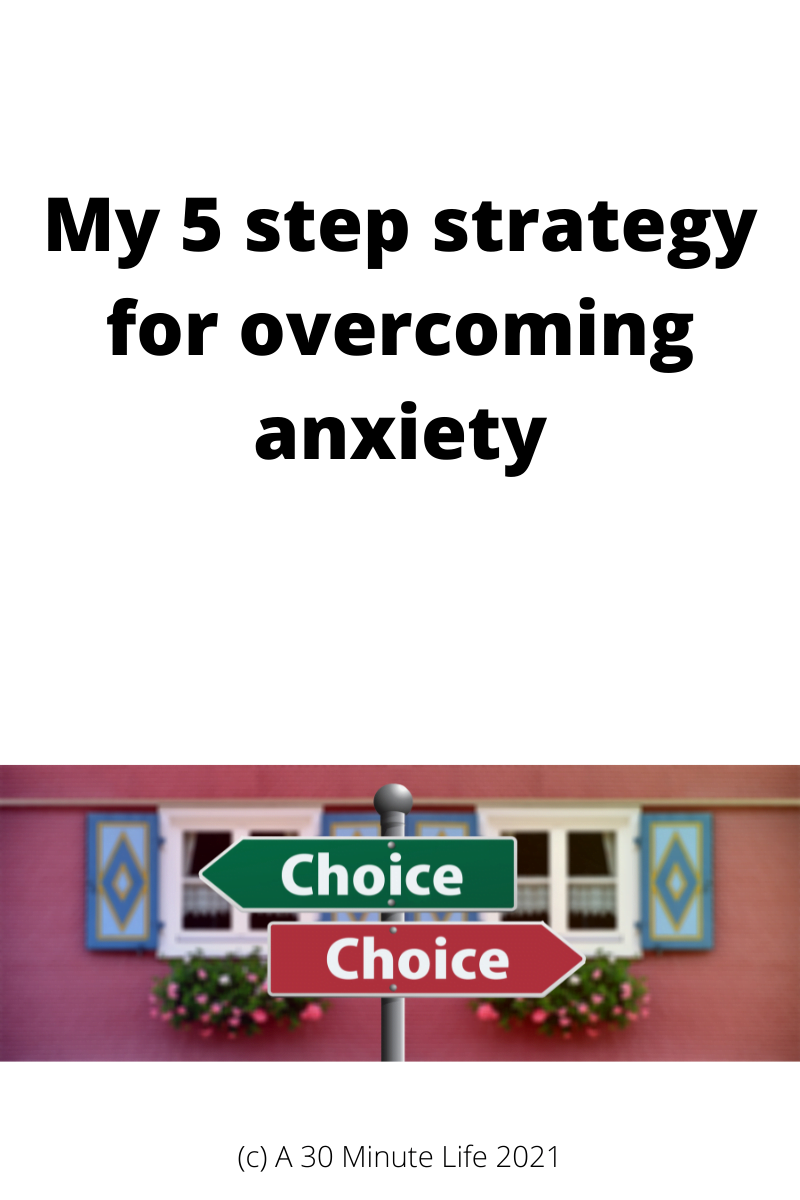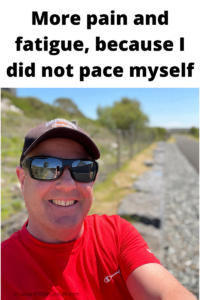For the last few weeks my anxiety levels have been steadily climbing. It has been particularly difficult. Anxiety expresses itself in many ways, which include extra fatigue, poor concentration, irritability as well as physical symptoms, like upset stomach, frequent toilet breaks, to name a few. It is horrible and makes it very difficult to do anything in your day. Paralysing is how I describe it.
In the middle of this storm I hosted a webinar for the MS Society of Ireland on this topic, Anxiety & Fear. I was speaking with Dr. Jonathan Egan, my Clinical Psychologist, and we discussed how I felt, and also ways to overcome, or at least soften, this anxiety. Talking with him, in public, about this was very hard and I did think of not going ahead with the event, but on reflection I felt it was important for my community to know they are not alone, when something like this happens.
The reason for feeling this way is something I wish to keep private, but I can say my anxiety was caused by me thinking about the possible impact on my life of something of which I had very little control. It was the unknown which heightened this reaction. Rationally, it all seemed silly. Would my life actually change in the short term, probably not, did I have control of the event, very little, so why so anxious. Anxiety is part of our primitive selves. Our monkey brain.
This is all part of the fight or flight response. How our bodies deal with danger, real or perceived. This is real primitive stuff and my body was preparing for action. However, we live in a world where most of the threats we have are intangible. If this is the case what can we run away from, or attack? There is no place to hide away, or something to fix, it is all in our heads. We don’t have a physical enemy, and even if we did, our society doesn’t condone people attacking each other. We have no way of releasing this negative energy.
As a result we collapse, like I did. Spending more time in bed, sleeping, hiding away from the invisible enemy. Unable to cope, getting angry at mundane things, like the food doesn’t taste right, or the fork is not placed correctly on the table. In the absence of being able to react against what is causing our fear or anxiety, we attack something, anything, which is near us. Unfortunately, this often means we attack those closest to us, because they just happen to be there. So cruel and damaging to our loved ones.
I realised I was going through this when my partner said to me I was being very irritable. Could I see my behaviour? No, it didn’t seem this way to me, at first glance, but I trust my partner, and so started to take action to fix this problem. In this post I am sharing what I do to overcome my anxiety. Right now, as I write this, I am in the middle of my recovery, with a few more weeks until I am back to my old self. It takes time, this process cannot be rushed.
Step 1 – Acknowledge the problem
This is the hardest part of dealing with anxiety. To see there is a problem, because we naturally blame external forces for how we feel. It is much easier to find the fault in someone else, not ourselves. I could not see it, but because I trust and love my partner, I had a head start. Trying to look at my behaviour objectively, I could start to see how my anxiety was damaging the people around me.
If you don’t have someone close to you to nudge you into acceptance then you need to have some way of seeing this yourself. If you keep a journal, you will see what you are writing has become angry, aggressive, blaming others for what is happening to you. This is the power of daily journaling and mindfulness. You have two tools which can help you look at yourself from outside.
Step 2 – Try to understand the cause
This can be difficult to do on your own. I have found that writing down how I feel is a great start. Once you accept you are anxious or fearful, then you can start the hunt for the cause. It could be a bad relationship, or some future event about to happen, or even concern about the progression of an illness. It can be a big thing, or something small. The key is to figure out what is the cause.
Often this takes time, and personal reflection. Meditation helps with this as you have taught your mind how to be still and relaxed. If, when you meditate, you find it hard, because some thought keeps blocking you, write it down. Now you have a start. Something to write more about. Try to write down your understanding of the cause of your anxiety or fear.
Step 3 – Look for help
Hopefully you will be able to find the cause, but this isn’t always possible. There are times when you need help. These last few weeks I have had to talk with my partner about my feelings and I have also spoken to my psychologist and doctor. I couldn’t do it on my own. This can be very hard to accept, but you will need to get help sometimes. Talking with someone you trust can help you find your cause.
In my case I understood what was making me anxious and fearful. My monkey brain had taken over and I needed help to put it back into its cage, until I was able to manage it on my own. This meant I had to take some medication to help me. Preventing me from becoming overwhelmed, until I could manage on my own. I had to break the negative spiral. It took me two weeks to get my head into the right place, more or less. Even today I still have waves of anxiety, where my stomach does somersaults. But it isn’t all the time. It passes.
Step 4 – taking control
Anxiety often comes because you feel like you have lost control and this step is how I start to regain authority of my life again. Little things happen first. Such as getting out of bed, taking a shower or heading out of the house. Everyone is different, so what you do to start this process will be unique to you. For me, it was writing down what I was anxious about and then trying to break this down into smaller and smaller parts. I kept doing this until I had a small step I could do. Make a phone call, or send an e-mail are some of the actions I took.
the key for me is to gradually build upon these small wins. Rebuilding my resilience, my strength. It takes time and there will be setbacks. However, because I have done this before I know it is part of the process. Sometimes I push myself too much, and have to pull back. Finding the right pace of rebooting is critical, so you don’t push yourself back to the start again. You need to say “No” often. Don’t take on more than you can handle.
Step 5 – Enjoy the recovery
Now you have found your peace. The anxiety is back under control and you can start living again. Maintain your meditation/mindfulness practice and journaling, making sure you look after your mental health. Set a health sleep routine, eat well and exercise. By having positive daily habits you can keep anxiety away, most of the time. Enjoy this time, knowing you have come through the trial, and able to live a normal life again.
Final Thought
Many of the symptoms of multiple sclerosis (tingles, lost sensation, weakness, cognitive problems) are similar to those of anxiety and fear. This makes the impact of anxiety even more difficult for us, so we need to be more watchful. If we don’t the impact of losing control is doubly difficult and takes longer to overcome. MS is cruel and makes our lives so difficult, and having anxiety on top of this is very hard. There have been many times when the impact of chronic illness has pushed me into a dark place. It has happened over the last month, and will probably happen again. These steps are critical for me and I hope will help you deal with your anxiety.
It will take me another few weeks to fully recover, but I will get there, just like I have done many times before!!


